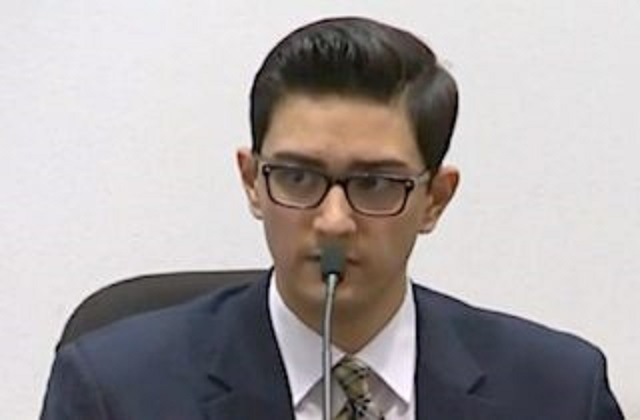
Steven Jones testifies during his first-degree murder trial in Flagstaff, Ariz. He told jurors he shot and killed another student in self-defense.
The jury for college shooter Steven Jones was split straight down the middle, says one juror who wishes to remain anonymous.
The jury announced this Tuesday that it was hung on all counts. Therefore, the judge in the case declared a mistrial. Jones faced first-degree murder, second-degree murder, manslaughter, and negligent homicide charges over the shooting death of Northern Arizona University student Colin Brough. Jones also faced aggravated assault charges and assault charges over the shootings of three other students, Nick Piring, Nick Prato, and Kyle Zientek. Jones claims he was sucker-punched and feared for his life after a handful of fraternity members spilled out onto a street near campus in the overnight hours of an October day in 2015 after they had been drinking.
The juror who came forward told a local television station that six members of the jury wanted to convict Jones of all of the assault charges he faced related to the shootings of Piring, Prato, and Zientek. Those same six jurors wanted to convict Jones of second-degree murder, not first-degree murder. Apparently, those six jurors did not believe the shooting was premeditated.
The six other jurors believed the shooting was in self-defense and wanted to acquit on all charges.
The one juror who spoke said members of the jury were all respectful to one another. He said that only one juror initially agreed that the shooting rose to the level of first-degree (premeditated) murder. The juror apparently changed his or her mind during deliberations.